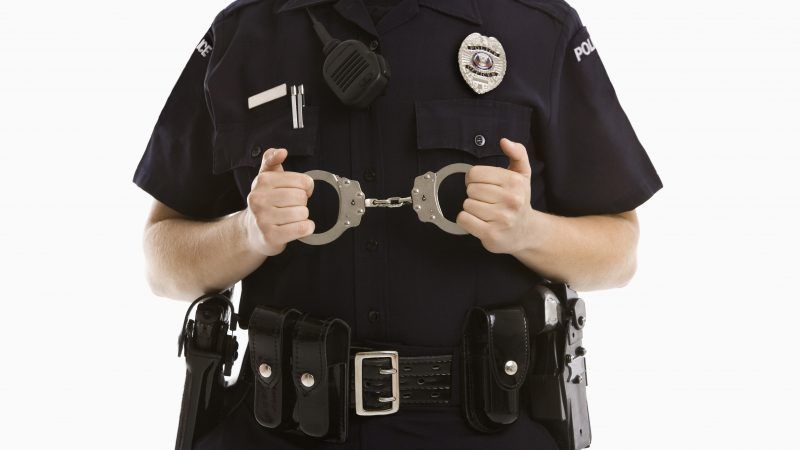Victims or Criminals? Cops Can't Decide When It Comes to Teens Selling Sex
Plus: trade vote today, woman sues DEA for seizing cash belonging to her dad with dementia, and more...

Wisconsin's efforts to stop "human trafficking" largely target people selling sex, including those who are underage. A third of police surveyed in the state said they don't differentiate between human trafficking and prostitution in crime incident reports. More than half said they have enforced prostitution laws against minors, treating them as perps rather than victims.
Under federal law, anyone under age 18 who engages in prostitution is defined as a victim of sex trafficking, regardless of whether an actual trafficker exists. But all over the country, cops continue to arrest teens for activity the law says they're incapable of consenting to—and which most people assume law enforcement is out to save such groups from.
A new analysis of sex-trafficking arrest data from the Wisconsin Department of Justice found that from 2014 and 2018, some 24 different police agencies representing 16 counties reported arresting children for prostitution while making zero arrests for sex trafficking. (Remember this next time someone argues that the way to save people from sexual exploitation is simply to send in more cops.) In addition, a third of the state's police agencies admitted that they don't differentiate between prostitution and human trafficking when filling out crime data reports or entering incidents in agency records.
From 2014 to 2017, the report says, Wisconsin police agencies opened 118 human trafficking investigations, "with an additional 139 incidents that were either prostitution or human trafficking (entered by agencies that do not differentiate between the two offenses). Twenty-two agencies answered 'I don't know' whether their agency had any cases with a sex trafficking offense code and skipped the incident count question." Results for 2018 showed a similar lack of differentiation.
Fifty-eight percent "of chief and sheriff respondents reported that their agencies enforce prostitution laws against juveniles," says the report. "An additional 25% reported it would depend on the circumstances whether they would do so." That's a full 83 percent of police respondents who said they or their colleagues would arrest juveniles for prostitution.
You can read the full report in all its horrifying detail here.
It would be nice to at least think that Wisconsin's "anti-trafficking" efforts are an anomaly. But the vast majority of sex policing across the country (including that done by Homeland Security, the FBI, and federal immigration agents) comes at the expense of those engaging in prostitution, regardless of whether they're doing it by choice, regardless of how old they are, and regardless of how much the political rhetoric declares that saving them is the priority.
FREE MARKETS
The Senate votes today on a new North American trade deal. "The U.S.-Mexico-Canada Agreement is expected to pass with overwhelming bipartisan support," reports Sabrina Rodriguez at Politico. "Senators began formal consideration of the pact on Wednesday afternoon."
Some previous Reason coverage of the agreement:
- "Pence Says North American Trade Deal Will Boost U.S. Automaking Jobs. Don't Believe Him."
- "Trump's 'Capitulation' on Trade Deal Leaves Republicans in Awkward Position"
FREE MINDS
A woman is suing after the Drug Enforcement Administration seized more than $80,000 in cash from her for no good reason. Rebecca Brown says that the money belonged to her father, who has dementia, and that she was putting it in a bank account for him. "Brown said she was never told she or her father were under suspicion of committing any crime and neither has been charged with anything," reports The Washington Post. "A search of her bag turned up no drugs or other contraband. Neither she or her father appear to have criminal records that might raise suspicions."
QUICK HITS
- "So calling somebody a 'Boomer' and considering them for a position would be actionable?"
- The House Committee on Energy and Commerce joins a number of congressional committees in looking at easing federal restrictions on marijuana.
- A federal court put a temporary block on an Trump administration order to let governors stop refugee resettlements in their states.
- Two Houston police officers have been indicted after killing a couple during a drug raid.
- New hemp regulations would create a nightmare for U.S. farmers.
- Virginia is very close to ratifying the Equal Rights Amendment—though that might not matter.
- 1843 magazine has a lengthy profile of the creator-centric sex work site OnlyFans.
